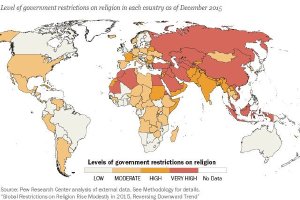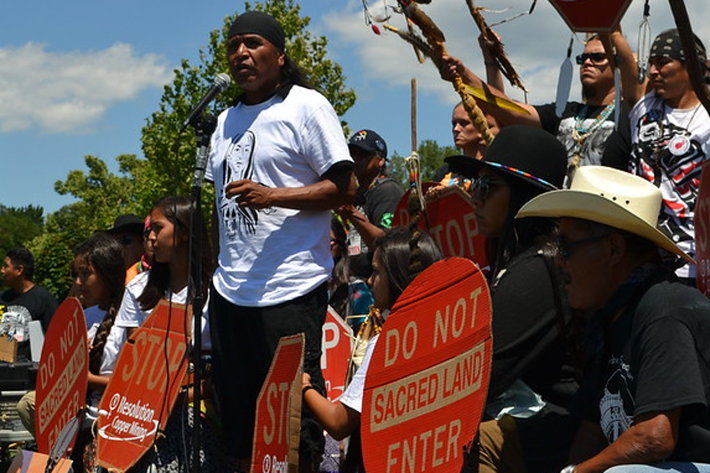Although presented in 2013, the TEDx talk by Brian J. Grim, founder and president of the Religious Freedom & Business Foundation, adds dimension to the numbers in the most recent Pew Study on Restrictions on Religion.
The talk, delivered at the Vatican, reviewed the deteriorating global situation of religious freedom. Grim speaks on the difference between government and social restrictions on religious freedom and how social restrictions tend to mirror, follow the trend, and be reinforced by government restrictions. He also presents insight into the effects on this right of the terrorist attacks of September 11, 2001, and an analysis of religious freedom issues in the Middle East and North Africa in the aftermath of Arab Spring.
The numbers in the most recent study show the worsening trend visible in 2013 has only intensified in the years since this talk.
“Everyone has the right to freedom of thought, conscience and religion.”
The booklet What is Religious Freedom? published on this website shows that the struggle for religious freedom has gone on for thousands of years, and the adoption of the 1948 Universal Declaration of Human Rights (UDHR) was the first time legal international human rights obligations were defined and agreed upon.
Article 18 of the UDHR states: “Everyone has the right to freedom of thought, conscience and religion.”
The Universal Declaration was created in response to the horrors of the Holocaust in World War II. Prior to the Holocaust, many argued that human rights were a domestic concern, to be supervised and enforced by the government within each country. This view evolved as the world learned of the scope of the atrocities, leading to a movement for internationally protected human rights that were universal and inalienable.
The importance of religious freedom as a core human right was embraced by the global community in the Universal Declaration. In the first sentence of its preamble, the Universal Declaration states that “recognition of the inherent dignity and of the equal and inalienable rights of all members of the human family is the foundation of freedom, justice and peace in the world.” It is this recognition of the inherent dignity of humanity that has become the driving force for the protection and promotion of religious freedom and all human rights.
What is Religious Freedom? is available in 17 languages and can be read on this website or downloaded as a pdf.
From its beginnings, the Church of Scientology has recognized that freedom of religion is a fundamental human right. In a world where conflicts are often traceable to intolerance of others’ religious beliefs and practices, the Church has, for more than 50 years, made the preservation of religious liberty an overriding concern.
The Church publishes this blog to help create a better understanding of the freedom of religion and belief and provide news on religious freedom and issues affecting this freedom around the world.


